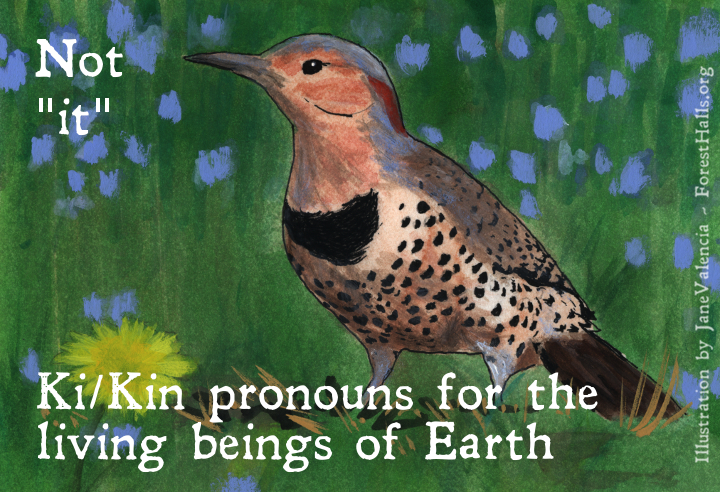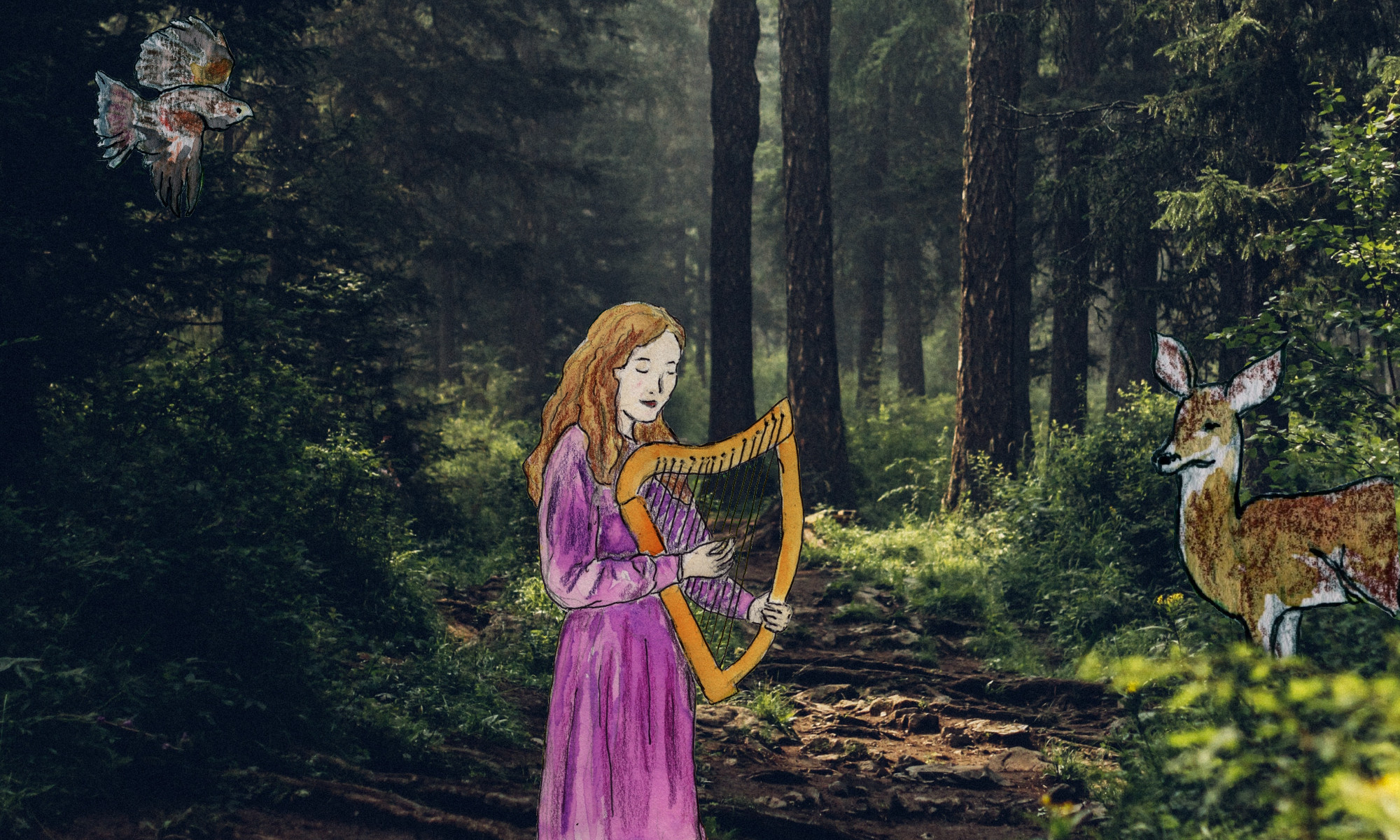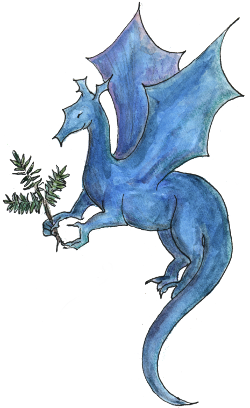
This post follows my first: Pronouns for the Beings of Nature – I’m using Ki/Kin
I’ve been musing about how to adapt ki and kin to possessive, objective, reflexive. As I use ki/kin and seek to expand the usage, I find myself inspired by the fact that I use a singular “they/theirs” so as to step outside of he/she (an example is “Each child will choose their book.”). I also find myself inspired by Northern Flicker’s call (“keer”), which I frequently hear these days outside my home and around our island.
As a result of both the usage and the sound, I find myself speaking like this:
Deer moved slowly across the yard. Ki turned toward me. Kir ears flicked. There ki is! Those hoofprints are kis.
Yes, I could have easily used gender pronouns for the deer. Let’s try it for Rainbow.
Rainbow spun outward from cloud and sunlight. Ki touched Earth. Kir colors brightened. There ki is! The sparkle on dew drops are kis.
Another example:
Kin dipped and soared over the yard. I called to kin. Kehr wings tipped in the sunlight. There kin are! That is kehrs.
Sometimes I find myself saying (drawing from some resonance from my study of Old English). “That is ki-held,” “that is kin-held” when working with some sense of belonging, intention, stewardship, but wanting to step away from the sense of possession/ownership in my language usage.
As I type all this blog post, my usage feels clumsy, ill-formed. But in my real-life practice with the beings I encounter, my words feel more like play, like kneeding dough, or shaping clay. Expressing through gesture and sound something that I deeply feel connecting us, then smooshing that clay and shaping again. Not having to agree with anyone yet about particulars, I allow the forms to change.

I love the idea of opening our language, dancing with words, feeling where ki becomes alive and natural and tender – a truer reflection and expression of the magic I experience and hope to share as we renew and deepen our relationships with one another in every ripple of being.
Words are a storytelling. When we shape language together, we enter a story weaving. A renewed tale for our times about who we really are within this vibrance and tapestry that is Life.
I wonder what story I may discover if I request ki/kin usage for myself.
Do you use ki/kin? What language or respect do you offer to our more-than-human family in your daily life? Do you feel like you’re trying on new shoes that haven’t shaped to you yet, or does your gesture feel natural, or some other feeling? Please share below!


oh my gosh. I love this. Be the change.
Thankyou for sharing, I love this too! It needs to catch on 💜🌿🐾
Both wild blackberries and wild black raspberries have thorns and kin have been known to attack human persons who talk to kin with pruners. The blackberry thorns are much more vicious and kir fruit isn’t half as sweet as the raspberries.
Oh, well done, Brandon. Thank you — your writing here is inspired. You certainly know kin, Blackberry and Raspberry!
I’m trying to use ki/kin when I write, but you’re right, it feels awkward and clumsy. But so did using they singularly and i’m getting more used to that.
Hi Maggie, So glad to hear that you’re working with ki/kin. I love these words so much. It’s still awkward for me too, though. Like you, I’m using ‘they’ singularly. That has become more comfortable, though it took awhile!
Thank you so much for addressing the idea of possessives while using ki/kin/kir pronouns! I am currently writing a paper for a class, and wanted to refer to nature by kir own pronouns, but the article by Robin Wall Kimmerer didn’t discuss possessives! While I know that the idea of possession in and of itself has its own problems, I am not familiar with any way of manipulating English to function without it. I’m so glad I found your piece!
Quick question; in you pronunciation of ki/kin/kir, how do you say the i’s? I find myself saying kee, kin, and kehr, in the same way that you would use the vowels for he, him, and their.
Sorry if this is a bit long; I’m incredibly interested in languages and all of the fun stuff that comes with, so I tend to get excited when I find new and specific words that are important! Thank you so much again!
Hi Sam, I’m so delighted that you enjoy my small contribution to Robin’s proposal and use of ki/kin. You’re right, it’s so difficult to conceptualize language without possessives. It would be interesting to probe in that direction. Re: pronunciation of ki/kin/kir. I say kee, kin, and kihr, but kehr certainly makes sense to me, and I may end up shifting to that pronunciation. I believe I started more with ‘keer’ (as that is a sound of Northern Flicker, and I love the idea of voicing a sound that already meaningfully exists). In practice my pronuniciation of kir has been shifting to kihr, or kee-ihr, with the ‘ee’ sound really brief. I do like the sound of ‘kehr’ that you suggest, and encourage you to speak it. After all, if we end up having two (or more!) pronunciations of the same word, that is certainly appropriate to language play, and to the diversity that gives rise to dialects and beyond.
I love languages too! So glad to ‘meet’ you!